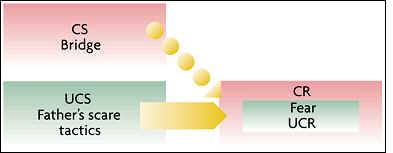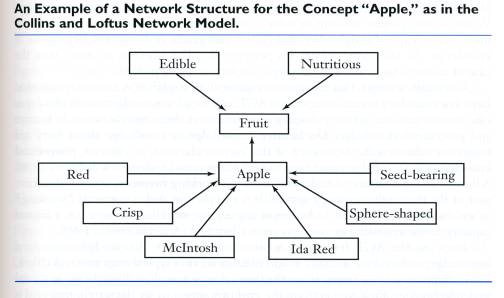
Human Learning
I. Classical Conditioning
Event-Event Learning--organism learns that Event #1 is a reliable predictor of Event #2
How?
Contiguity and contingency

Example of Classical Conditioning

II. Operant Conditioning
Response-Consequence Learning--an organism’s behavior changes because of the consequences that follow the behavior.
Why? Law of Effect (E. L. Thorndike)
Further, the consequence is contingent on the response being made
reinforcement—the contingency that results when the consequence of a behavior causes the future probability of that behavior to INCREASE
punishment—the contingency that results when the consequence of a behavior causes the future rate of the behavior to decrease…
Examples of Operant Conditioning
A student volunteers to answer a tough question in class, and the teacher comments favorably on the quality of the student’s contribution.
A child presents a bad report card to his parents and is sent to his room with no supper.
III. Observational/Social Learning
Occurs by watching and imitating actions of another person or by noting consequences of a person’s actions...occurs before direct practice is allowed
For observational learning to be effective:
Pay attention to model.
Remember what was done.
Be able to reproduce modeled behavior.
If a model is successful or his/her behavior is rewarded, behavior more likely to be imitated.
Bandura's BoBo doll experiment
IV. Cognitive Learning
Attkinson & Shiffrin (1968) model is representative of the cognitive perspective
Distinguished between structural
and processing components of memory
The structure is thought to be
those parts of the memory system that do not change

Three structures:
(1) sensory registers, (2) STS, (3) LTS
Information transfer from STS to LTS under
person's control (control processes)
Repetition
of an item (even if unaware) leads to better performance
Two main control processes in STS—rehearsal and retrieval
Recent theory and research has focused on three learning/memory processes

Encoding
Levels of Processing—Craik & Lockhart (1972) suggested that processing was more important than the underlying structure of memory
A. Four assumptions:
(1)
Memory is result of a series of analyses performed on the to-be-processed
information.
Shallow
level vs. deep level
(2)
The deeper the level, the more durable the resulting memory.
Focusing on the meaning of the to-be-remembered item should lead to a stronger memory, rather than focusing on how the item sounds.
(3)
Rehearsal will be beneficial only to the extent that it induces a deeper level
processing.
Elaborative vs. maintenance rehearsal
**Deep levels of processing encourage recall because of two factors:
Elaboration--processing focuses on how the items fit together
Distinctiveness--processing focuses on how a stimulus is different from other items
Storage
How is information organized in memory?

Retrieval
Major factor--degree of overall match between conditions at encoding and conditions at retrieval